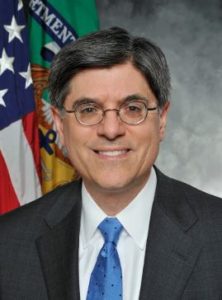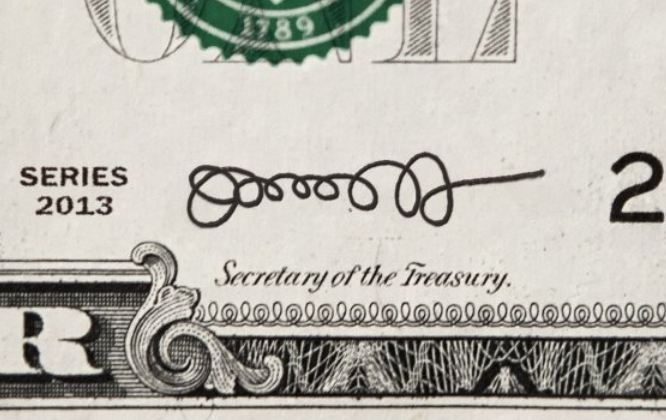Revolutionary Physicist
 Richard Phillips Feynman (1918-1988) was born in Queens to Lithuanian Jewish immigrant parents. Before his birth, his father had decided that his son should be a scientist, and raised Feynman from an early age to question everything. Feynman did not speak his first word until he was three years old. In childhood, he loved to take things apart and even set up a lab in his home, hiring his little sister for 4 cents a week to be his assistant. (He would later inspire and encourage her to become a renowned astrophysicist in her own right.) At 15, he taught himself advanced algebra, calculus, and trigonometry. He applied to Columbia University but was rejected because the quota for Jewish students had been filled. Feynman went to MIT instead, first majoring in math, then electrical engineering, and finally physics. He published his first two papers as an undergrad, and his senior thesis (putting forth what would become the Hellmann-Feynman theorem) brought him a great deal of recognition in the scientific community. Feynman then applied to grad school at Princeton, and got an unprecedented perfect score on the physics exam. Again, he was initially brushed aside for being Jewish before the dean was convinced not to miss out on the young genius. (Feynman was admitted only on the condition that he wouldn’t get married!) At 23, he defended his Ph.D, and was already being compared to Einstein (he would win the Albert Einstein Award in 1954). Meanwhile, Feynman was working on the Manhattan Project, leading a team developing the isotron (to isolate uranium-235), then developing what’s now called the Bethe-Feynman formula for fission bomb yield. At Los Alamos, he was one of the “human computers”, and helped to develop better machinery for some of the world’s first digital computers. Towards the end, he spent time lecturing on the dangers of nuclear power, and put together a safety manual for uranium enrichment.
Richard Phillips Feynman (1918-1988) was born in Queens to Lithuanian Jewish immigrant parents. Before his birth, his father had decided that his son should be a scientist, and raised Feynman from an early age to question everything. Feynman did not speak his first word until he was three years old. In childhood, he loved to take things apart and even set up a lab in his home, hiring his little sister for 4 cents a week to be his assistant. (He would later inspire and encourage her to become a renowned astrophysicist in her own right.) At 15, he taught himself advanced algebra, calculus, and trigonometry. He applied to Columbia University but was rejected because the quota for Jewish students had been filled. Feynman went to MIT instead, first majoring in math, then electrical engineering, and finally physics. He published his first two papers as an undergrad, and his senior thesis (putting forth what would become the Hellmann-Feynman theorem) brought him a great deal of recognition in the scientific community. Feynman then applied to grad school at Princeton, and got an unprecedented perfect score on the physics exam. Again, he was initially brushed aside for being Jewish before the dean was convinced not to miss out on the young genius. (Feynman was admitted only on the condition that he wouldn’t get married!) At 23, he defended his Ph.D, and was already being compared to Einstein (he would win the Albert Einstein Award in 1954). Meanwhile, Feynman was working on the Manhattan Project, leading a team developing the isotron (to isolate uranium-235), then developing what’s now called the Bethe-Feynman formula for fission bomb yield. At Los Alamos, he was one of the “human computers”, and helped to develop better machinery for some of the world’s first digital computers. Towards the end, he spent time lecturing on the dangers of nuclear power, and put together a safety manual for uranium enrichment.
After the war, Feynman joined the faculty of Cornell University, and there developed his famous (and revolutionary) “Feynman diagrams” to solve and explain quantum problems more easily. After a sabbatical in Brazil, Feynman moved to Caltech, working on superconductivity, superfluidity, nuclear decay, and quantum gravity, among many other subjects. He is credited with being the first scientist to conceive of both nanotechnology and quantum computers. In the 1960s, he began writing books on physics, many of which went on to become bestsellers and university textbooks. In 1965, he won a Nobel Prize for his theory on quantum electrodynamics, and in 1979 won the National Medal of Science. Feynman became even more famous in 1986 when he lead the team that investigated the crash of the space shuttle Challenger. Feynman was voted by scientists as one of the 10 Greatest Physicists of All Time, and Bill Gates recently wrote an article (titled “The Best Teacher I Never Had”) about how it was Feynman that served as his greatest inspiration. Feynman was famous for his sense of humour and his rebellious nature. He rejected his religion (though at a later age encountered the Talmud and said it was “a wonderful book”), resisted his superiors (he was sought out by Niels Bohr because all the other physicists were too fearful to argue with the great Bohr), and even derided his Nobel Prize (saying the real prize was the scientific discovery). Feynman also loved biology and poetry, and was an avid painter and musician. Last Friday would have been his one hundredth birthday.
Words of the Week
As they set out from their place above, each soul is male and female as one. Only as they descend to this world do they part, each to its own side. And then it is the One Above who unites them again. This is His exclusive domain, for He alone knows which soul belongs to which and how they must reunite.
– Zohar (I, 85b)

 Jacob Joseph Lew (b. 1955) grew up in Queens and graduated from Forest Hills High School. He is the son of a lawyer originally from Poland. Lew began his career in politics working as an aide to a democratic representative, while also studying at Harvard, and later rose through the ranks in Congress. Eventually he became director of several institutions, including the Center for Middle East Research. In 1993 he was appointed Special Assistant to President Clinton. His amazing work in the budgeting department led to him becoming the director of the Office of Management and Budget for the Clinton Administration, meanwhile serving on the National Security Council. After Clinton’s term ended, Lew was Vice President of New York University, where he also served as Clinical Professor. Lew returned to government with the Obama administration, first as Deputy Secretary of State, then Budget Director, and most recently White House Chief of Staff (the highest ranking White House employee – sometimes nicknamed the “Co-President”). He has since taken up the position of Treasury Secretary, making him the highest ranking Orthodox Jew in U.S. history. It also means his signature will appear on all newly printed currency in the U.S. This sparked a bit of controversy due to Lew’s funny signature, causing President Obama to joke that he wanted to rescind the nomination when he saw it. Lew is a practicing Orthodox Jew, devoted to his family and his community. In the past he assisted Natan Sharansky in freeing Jews from the former Soviet Union, together with his rabbi, who has described Lew as “one of the most unassuming, giving, and caring congregants I’ve ever been blessed to have… rare for a person in such a powerful position to be the quintessential mensch.”
Jacob Joseph Lew (b. 1955) grew up in Queens and graduated from Forest Hills High School. He is the son of a lawyer originally from Poland. Lew began his career in politics working as an aide to a democratic representative, while also studying at Harvard, and later rose through the ranks in Congress. Eventually he became director of several institutions, including the Center for Middle East Research. In 1993 he was appointed Special Assistant to President Clinton. His amazing work in the budgeting department led to him becoming the director of the Office of Management and Budget for the Clinton Administration, meanwhile serving on the National Security Council. After Clinton’s term ended, Lew was Vice President of New York University, where he also served as Clinical Professor. Lew returned to government with the Obama administration, first as Deputy Secretary of State, then Budget Director, and most recently White House Chief of Staff (the highest ranking White House employee – sometimes nicknamed the “Co-President”). He has since taken up the position of Treasury Secretary, making him the highest ranking Orthodox Jew in U.S. history. It also means his signature will appear on all newly printed currency in the U.S. This sparked a bit of controversy due to Lew’s funny signature, causing President Obama to joke that he wanted to rescind the nomination when he saw it. Lew is a practicing Orthodox Jew, devoted to his family and his community. In the past he assisted Natan Sharansky in freeing Jews from the former Soviet Union, together with his rabbi, who has described Lew as “one of the most unassuming, giving, and caring congregants I’ve ever been blessed to have… rare for a person in such a powerful position to be the quintessential mensch.”
